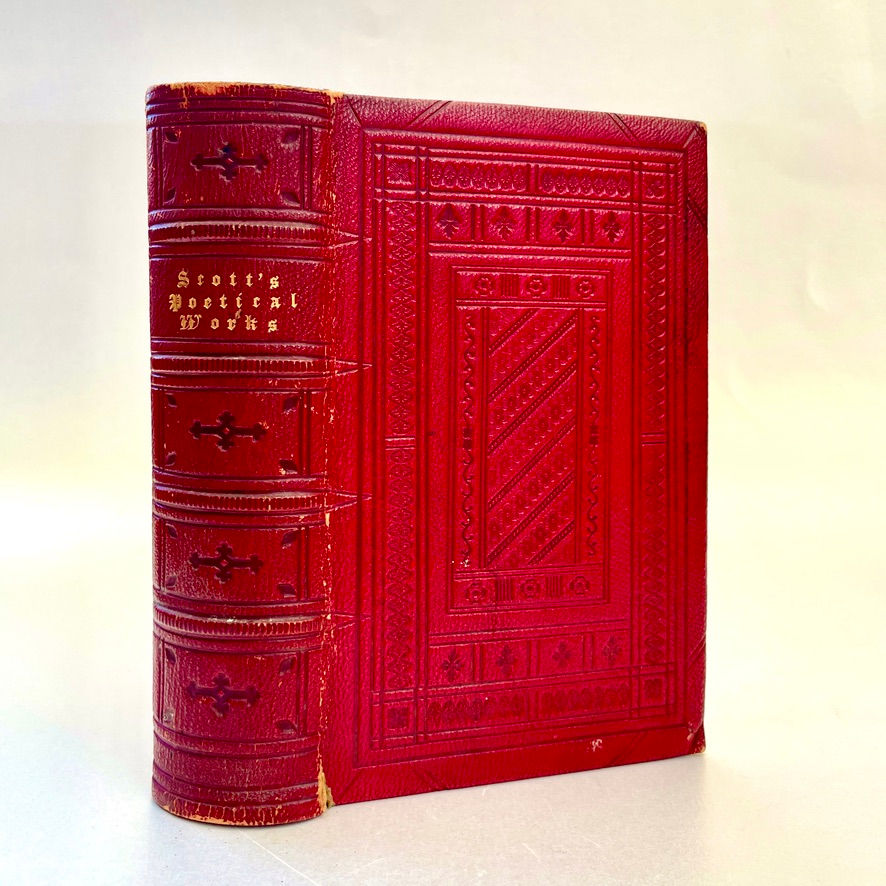The Quiet Life in Stray Rhymes: A Nottingham Treasure with a Hidden Story
- Marie
- Jul 29
- 3 min read
When I first picked up Stray Rhymes, the 1873 privately printed volume by “Emerald Isle”, real name Duncan D. Hepburn, I paused. The black leather cover was still solid after all these years. The pages were sprinkle edged in colour, and the endpapers glowed a soft green. And then, inside the flyleaf, a handwritten note: "With the Author’s Compliments."
It was addressed to the editor of The Nottingham Journal. In what looks like the same hand, “First Edition” was pencilled below it. It was quiet, unassuming, but that small inscription told me everything I needed to know. This wasn’t just a book of poetry. It was a gift. A gesture. A story waiting to be remembered.
A Private Press, Bound in Nottingham Memory
This copy of Stray Rhymes is a private press edition, printed by Dunn & Fry of South Parade, Nottingham. You can feel the care in every part of it, from the coloured endpapers to the fine binding, it’s the kind of book someone created not just to sell, but to share.
It’s filled with 52 pages of verse, including poems like To Scotsmen, The South Notts Yeomanry, and Dr Livingstone. These aren’t poems reaching for grand, global acclaim. They’re personal. Regional. Rooted. There’s something quietly powerful about that: poetry that speaks to a place and a people.
The Voice Behind Stray Rhymes: Duncan D. Hepburn’s Quiet Legacy
Duncan Dewar Hepburn was born in Edinburgh in 1817 and later settled in Nottingham, where he worked as a dental surgeon. But poetry was clearly part of his life. In an age before social media or self-promotion, he took the bold step of printing this small collection privately.
He signed this particular copy for the editor of The Nottingham Journal, though we’ve not yet uncovered exactly who that editor was. What we do know is that no other copies of this private press 1873 edition have been found in any online catalogue, archive, or sale record. It may well be the only one of its kind.
That makes this not just a rare book, but a singular voice preserved in one, surviving whisper.
Why This Book Spoke to Me
What I love most about finding books like this isn’t just the poetry or the rarity. It’s the human story hidden inside. A man who worked with his hands during the day, tending to people’s pain, quietly crafting verse by night. A gift offered to a local editor, hoping perhaps for a review, or simply recognition.
You can almost see him, pen in hand, choosing the words. Choosing the paper. Handing over the copy with quiet hope.
Books like this remind me why I do what I do. Why I search through old pages and shelves, listening for the stories behind the stories.
What Have You Found in a Book?
If you’ve ever come across an old note, an inscription, a dried flower tucked inside a page — you’ll understand. It’s not just an object. It’s a connection. A moment from someone else’s life, still breathing quietly in yours.
I’d love to hear your story. Leave a comment below or come and share it with me on Instagram or Facebook. I never tire of hearing about those quiet, powerful moments.
Explore This Piece of Nottingham Literary History
This rare copy of Stray Rhymes is available now in the shop. Whether you’re drawn to it for its poetry, its inscription, or simply its soul, I hope it finds the right home. You can view it here.










Comments